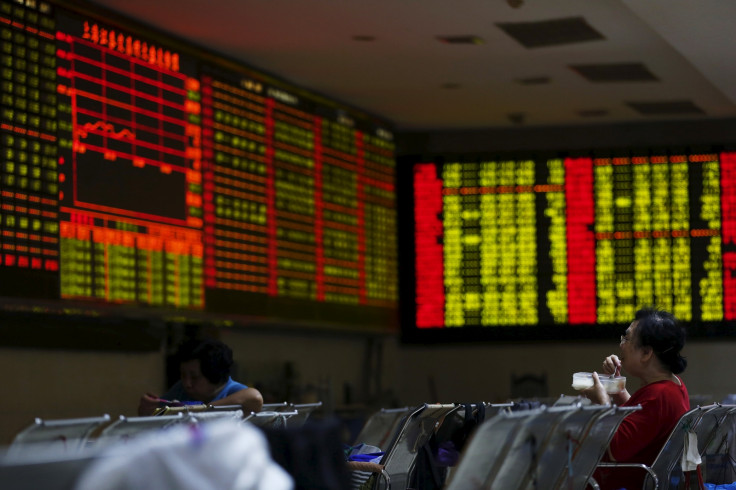Black Monday: People's Bank of China cuts reserve requirement ratio and interest rates

The People's Bank of China has cut the requirement reserve ratio for investors by 0.5 percentage points, in the seventh cut since November 2014.
The cut means the ratio will be at 18%, down from 18.5%. It was announced to encourage investments on the falling Shanghai Composite index, China's main stock market.
The Bank also announced it is cutting the one year lending interest rates by 0.25 percentage points, from 4.85% to 4.6%, as well as the deposit rate, which has been cut to 1.75% from 2%.
Sanctions from the People's Bank of China were largely expected by analysts after the Shanghai Composite suffered a loss of more than 8% on 24 August dubbed 'Black Monday'.
European investors were hoping on a cut of the reserve requirement ratio, and the FTSE 100 jumped 1.1% in less than 10 minutes after the news. Tuesday was the seventh consecutive day of losses on the Chinese stock markets.
Craig Botham, emerging markets economist at Shroders, commented: "By cutting the [Reserve Requirement Ratio], alongside recent market operations, this liquidity is restored and lending supported. Interest rate cuts, meanwhile, should reduce borrowing costs for existing borrowers, particularly households and state-owned enterprises."
Botham added that he was very doubtful the measures would have any grounded impact on the stock markets. "The stimulus measures should help market sentiment, but we do not expect a resurgent China as a result," he said.
© Copyright IBTimes 2024. All rights reserved.






